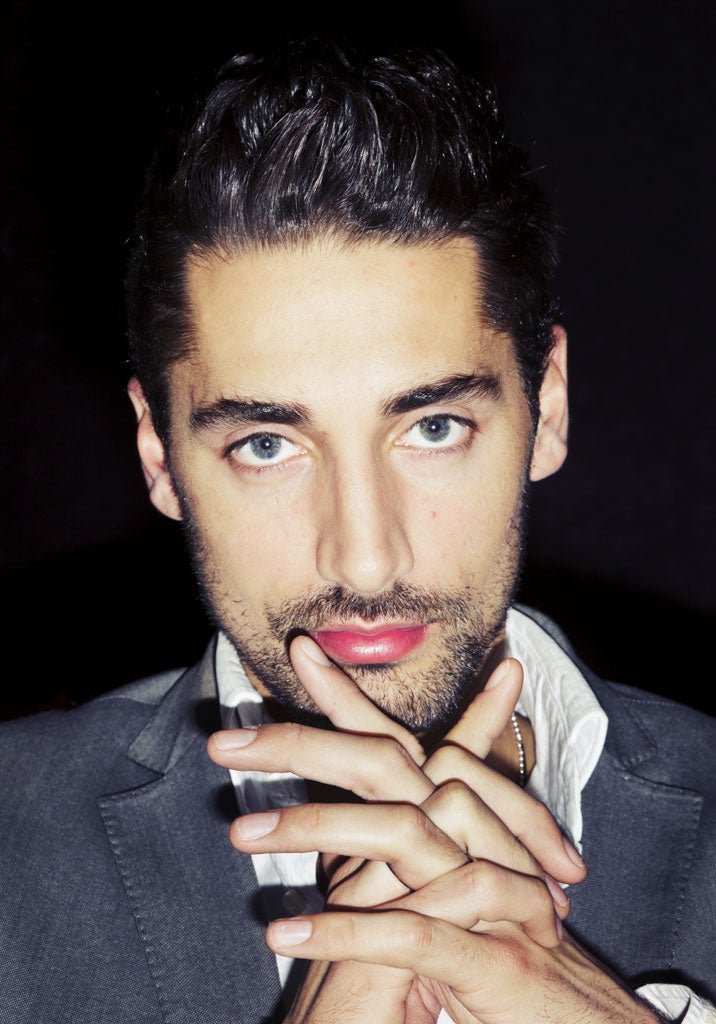Ten people who changed the world: Hugo Taylor, Made in Chelsea star
Whether in the cut-throat field of politics or the fashion industry's corridors of power, this year they left our planet a better place. Celebrate 10 of the best, nominated by Independent writers

Your support helps us to tell the story
From reproductive rights to climate change to Big Tech, The Independent is on the ground when the story is developing. Whether it's investigating the financials of Elon Musk's pro-Trump PAC or producing our latest documentary, 'The A Word', which shines a light on the American women fighting for reproductive rights, we know how important it is to parse out the facts from the messaging.
At such a critical moment in US history, we need reporters on the ground. Your donation allows us to keep sending journalists to speak to both sides of the story.
The Independent is trusted by Americans across the entire political spectrum. And unlike many other quality news outlets, we choose not to lock Americans out of our reporting and analysis with paywalls. We believe quality journalism should be available to everyone, paid for by those who can afford it.
Your support makes all the difference.It would probably be going too far to suggest that Hugo Taylor changed the world, all by himself, in 2011. But Hugo and his fellow stars of so-called "structured reality" – Made in Chelsea (MIC); The Only Way is Essex (TOWIE); Desperate Scousewives; Geordie Shore – certainly changed the world of celebrity. Or, at least, nudged it forwards a bit. To be honest, I could have written about TOWIE's Amy Childs instead, given that she brought the vajazzle to public attention. Or Kim Kardashian, the recently married/divorced queen of Stateside structured reality. Or Mark Wright, also of TOWIE, but he was in the jungle filming I'm a Celebrity....
Still, Hugo is perhaps the most coolly calculating of them all: master of his own destiny, as comfortable in his fame as he is in his Nike high-tops. He really was made in Chelsea: born, in fact, in the Belgravia Hospital on New Year's Day, 1987. His father is a QC; his mother works at Christie's. From their impeccable genes, Hugo derived his bone structure and his olive complexion. He works as a party promoter for such high-class SW3 venues as The Phene – which he and his MIC cast-mates regularly frequent. He went to Harrow; his best friend Spencer Matthews went to Eton. He was once "linked" to Princess Eugenie. According to his character profile, "He's the Chelsea crowd's go-to man for the coolest places to see and be seen", "a pretty, work-hard, play-hard kind of a guy" and "has never got lower than an A in any exam".
Hugo and/or Spencer worm their way into every MIC storyline. During the second series, for instance, Hugo was skewered on the sharp point of a love triangle. Make-up artist Millie Mackintosh, who recently graced the cover of FHM in her smalls, broke up with him after he cheated on her. And, in a "dramatic" series finale, Millie announced to the rest of the cast that Hugo's other woman was her own BFF, Rosie Fortescue. Millie's revelations were trailed before broadcast by the press, like an advance leak of the Prime Minister's Conference speech.
Such accessibility is at the heart of the structured reality star's appeal. While movie stars and musicians are reluctant to reveal their private lives to the press, the private lives of the MIC cast are their currency. Producers insist the broad strokes of each storyline and relationship are true, even if the scenery and the timing is pre-meditated. "We wanted people who were going to allow the emotional details of their lives to be broadcast to the nation," explains Tony Wood, creative director of Lime Pictures, which produces TOWIE and Geordie Shore.
"Reality shows like Big Brother did the business for a while," says Camilla Wright, the editor of Popbitch, "but normal people are just too dull to engage the public for long ... Structured reality works because it takes people who are willing to make themselves famous, and gives viewers enhanced versions of them."
Our relationship with reality TV has been troubled by the likes of Jade Goody and Susan Boyle, overnight stars who didn't always appear to be psychologically equipped for sudden fame. Structured reality performers, by contrast, sought out notoriety, knowing precisely what it would entail. Viewers can gorge, guilt-free, on their private lives, and journalists can report on them without feeling intrusive. Without even leaving the sofa, actually.
Of course, some conflation of fiction and reality was always crucial to the media-celebrity complex: from soap actors being mistaken for their characters, to fly-on-the-wall documentaries about Jordan being mistaken for Panorama. PR titan Max Clifford represents TOWIE's Lauren Goodger and sees structured reality as an evolution, not a revolution. "Lauren is doing incredibly well with endorsements: make-up, perfumes, books," he says. "It used to be that you could only do that with people like Kate Moss, but now there's a huge mass market: the market that Kerry Katona and Katie Price appealed to and built."
Hugo has the brains and the bank account to keep him in pink shirts and Nikes long after MIC comes to an end, but will he still be commanding our screens come 2013? Or will some new pretender take his place, from The Only Way is Sussex, or Made in Swansea? "There's only so much artifice people are prepared to put up with," says Camilla Wright, "and the underlying tone is negative, so structured reality shelf-lives will be short. The Kardashians and the cast of TOWIE might look like they're being held up as aspirational, but bit by bit we're seeing that they're there to be hated, resented and eventually destroyed."
Join our commenting forum
Join thought-provoking conversations, follow other Independent readers and see their replies
Comments